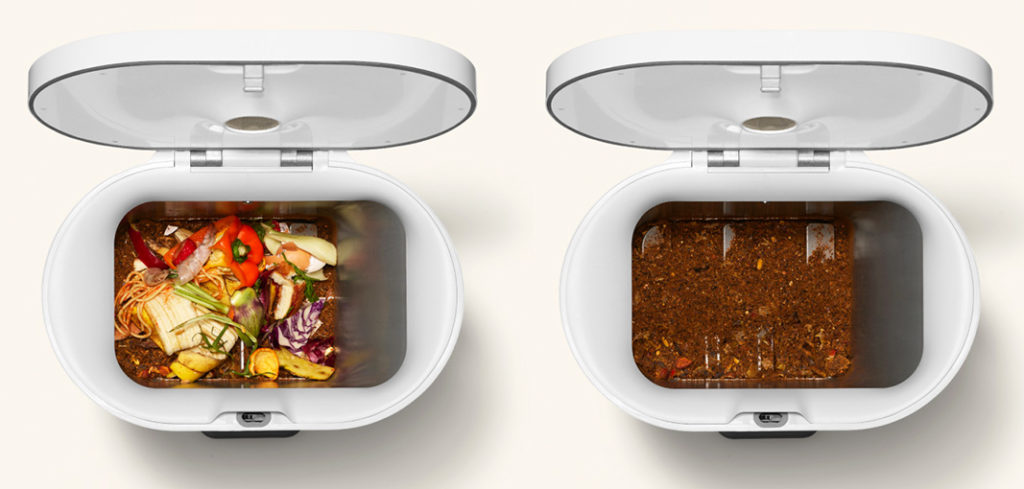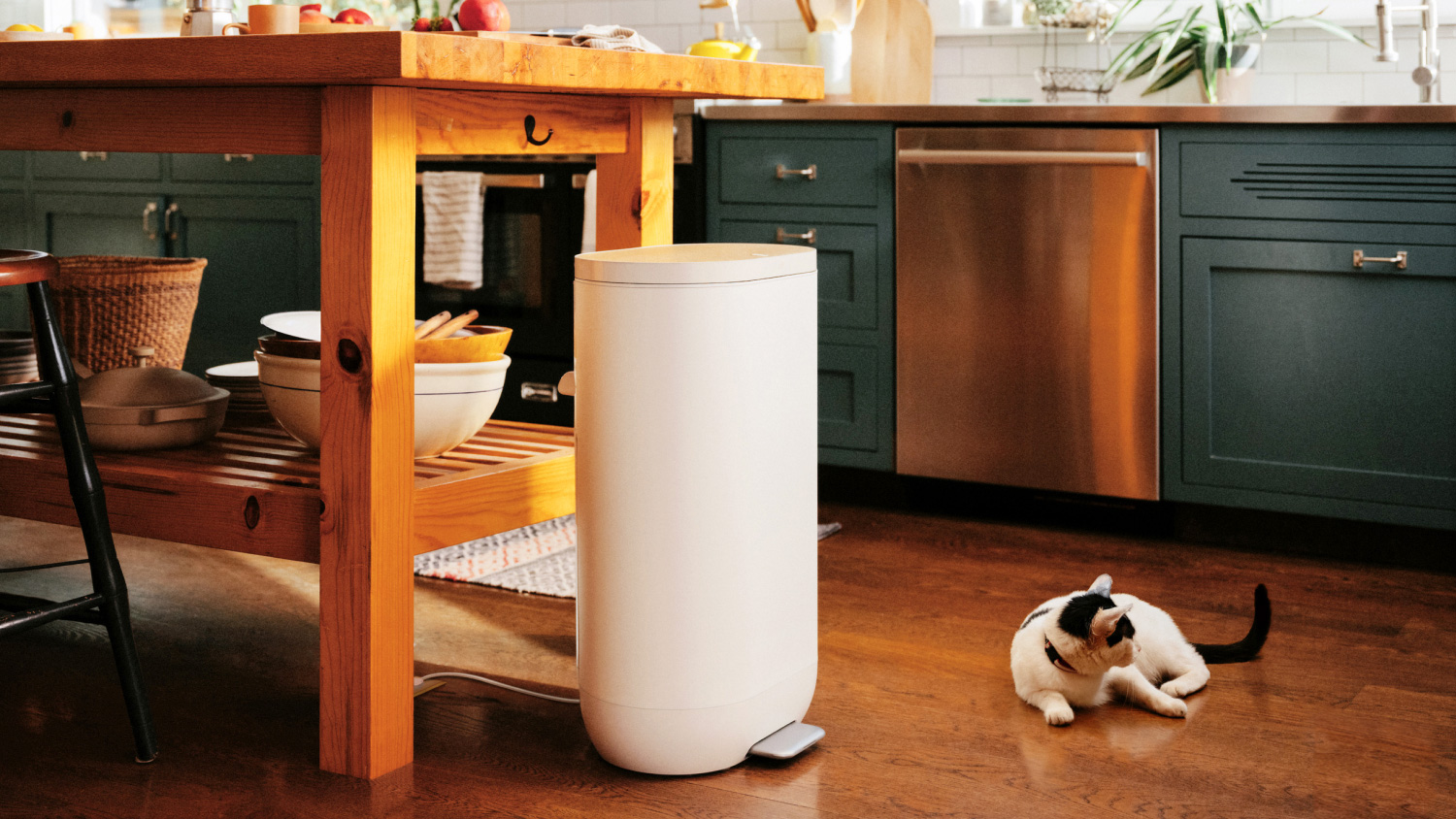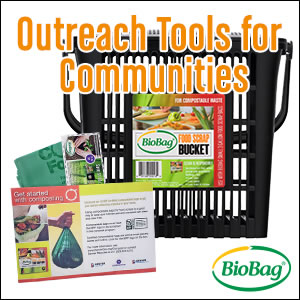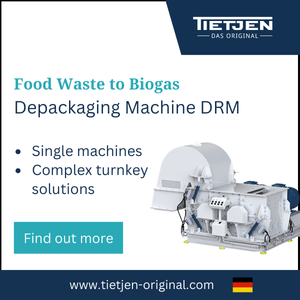Top: The 10-liter capacity floor-standing bin grinds and heat treats kitchen scraps.
Mill Industries, a climate-tech company focused on waste prevention, introduced its first product — the Mill kitchen bin that “dries, shrinks and de-stinks your kitchen scraps overnight.” The 10-liter capacity floor-standing bin grinds and heat treats food that is not eaten, creating what the company calls Food Grounds, which the household can ship back to Mill Industries in a prepaid box for conversion into an ingredient for chicken feed. The unit is available, starting in Spring 2023, via a $33/month Mill Membership that includes the kitchen bin and shipping boxes. Members plug in the bin, download the Mill app, and connect the bin to Wi-Fi. The app tracks the quantity of food added to the bin, and soon will include tips for reducing the amount of wasted food going into the bin, steps that can lead to saving money on food that doesn’t get eaten. When the bin is full, a pick up is scheduled in the Mill app. Food Grounds are emptied into the prepaid box, which is picked up by the U.S. Postal Service, and shipped back to a processing facility to make the feed ingredient. The company estimates that Mill members can avoid about a half-ton/household/year of greenhouse gas emissions, which includes the manufacturing of the bin, energy usage, and transportation of Food Grounds back to Mill Industries.

All food waste, small bones and poultry carcasses as well as soiled paper can go into the Mill bin. The output (right), trademarked as Food Grounds, can be sent back to Mill Industries for processing into an animal feed ingredient. Photos courtesy of Mill Industries
Mill was founded in 2020 by Matt Rogers, cofounder of Nest — the company that built the Nest Learning Thermostat and other smart home products — and Harry Tannenbaum, who worked with Rogers at Nest. “The lessons we learned about encouraging new habits at home that are good for people and the planet are incredibly relevant to changing our perception of waste, starting in the kitchen,” explains Rogers. “Our experience building products like the iPod and Nest Learning Thermostat has taught us that small changes can add up to something big.”
Adds Tannenbaum: “We’re building a pathway to connect what people can’t eat at home with farms that benefit from a more sustainable feed ingredient. Mill is closing the loop between kitchens and farms. By working to turn food you can’t eat into an ingredient for chicken feed, we can keep nutrients in the food system.” Mill Industries makes a point of saying the output from Mill is “not compost,” addressing potential confusion households might have. “Before we go any further…compost is awesome,” writes Tannenbaum in a guest blog for ReFED. “Compost can be great for your garden, if you have the space and patience to do it right. But Food Grounds are not compost. We’ve devoured — pun intended — all the available hierarchies of food diversion. And Mill believes the most efficient and impactful way to use our food surplus is to make sure that it stays food. And if it can’t be eaten by a human, it should be eaten by an animal.”













